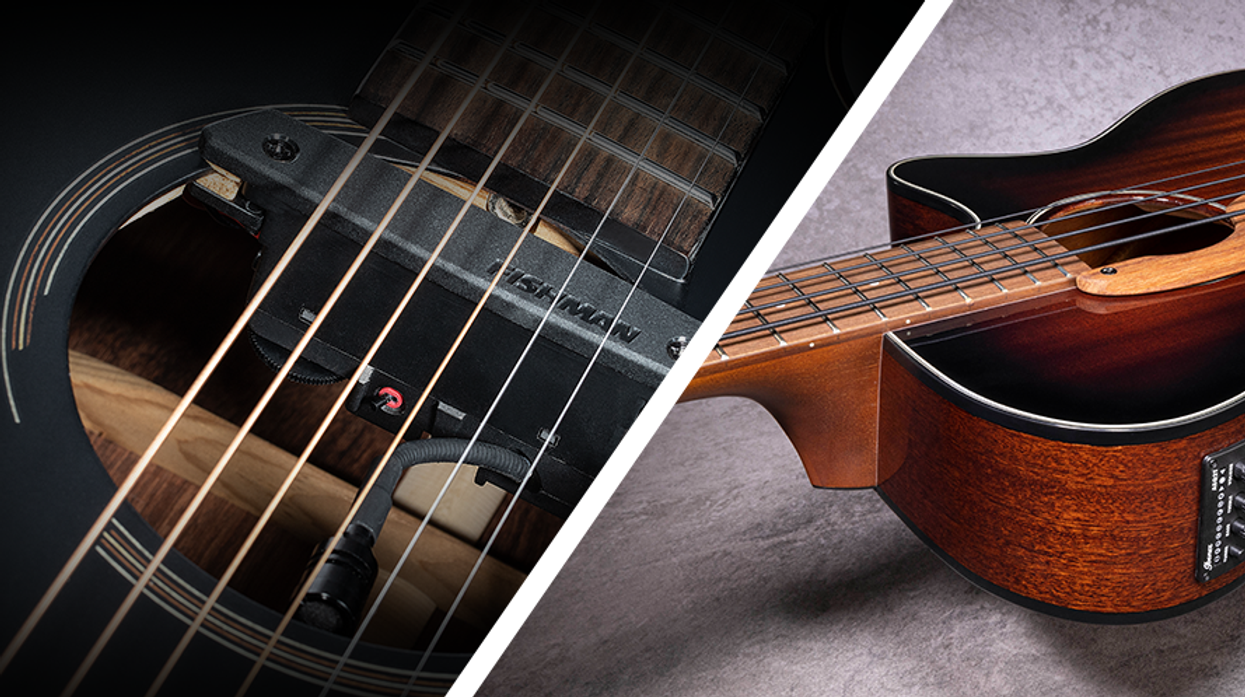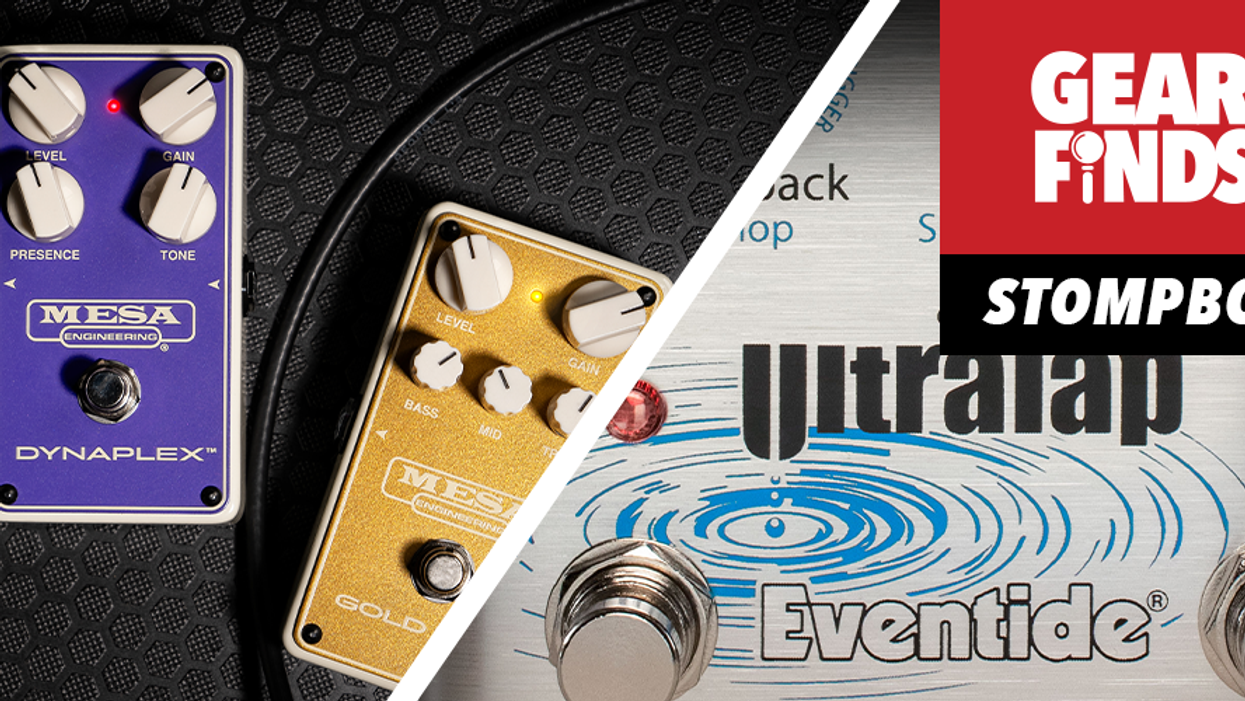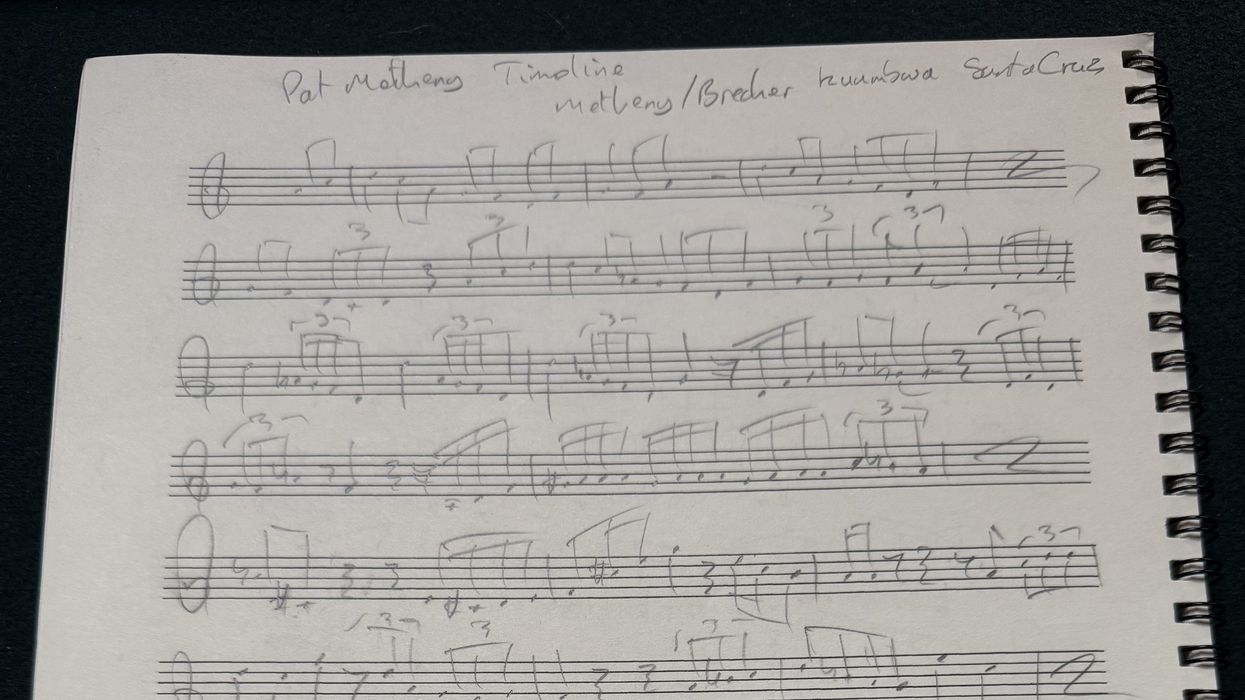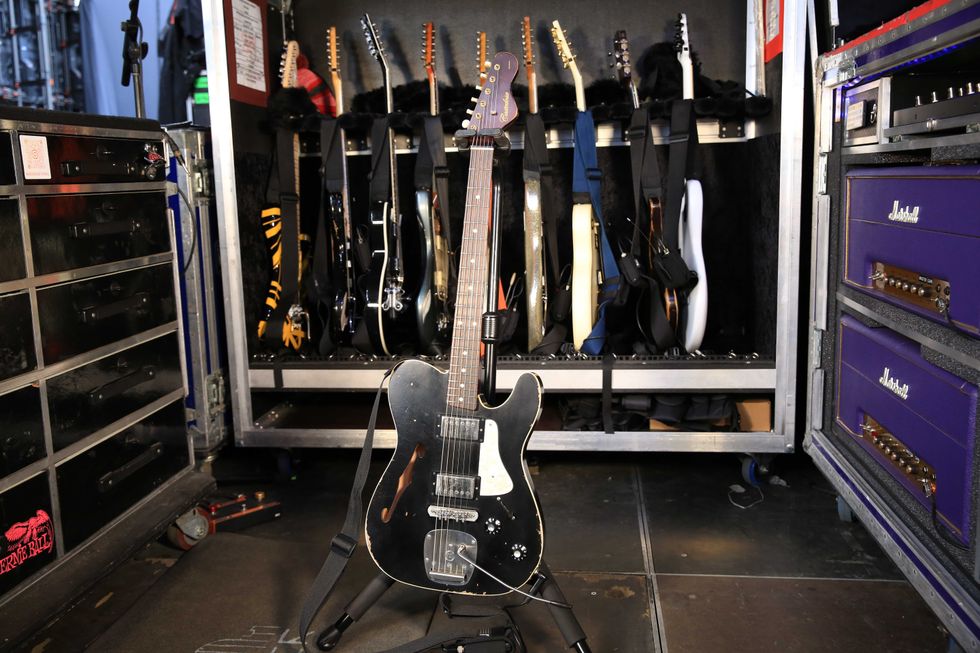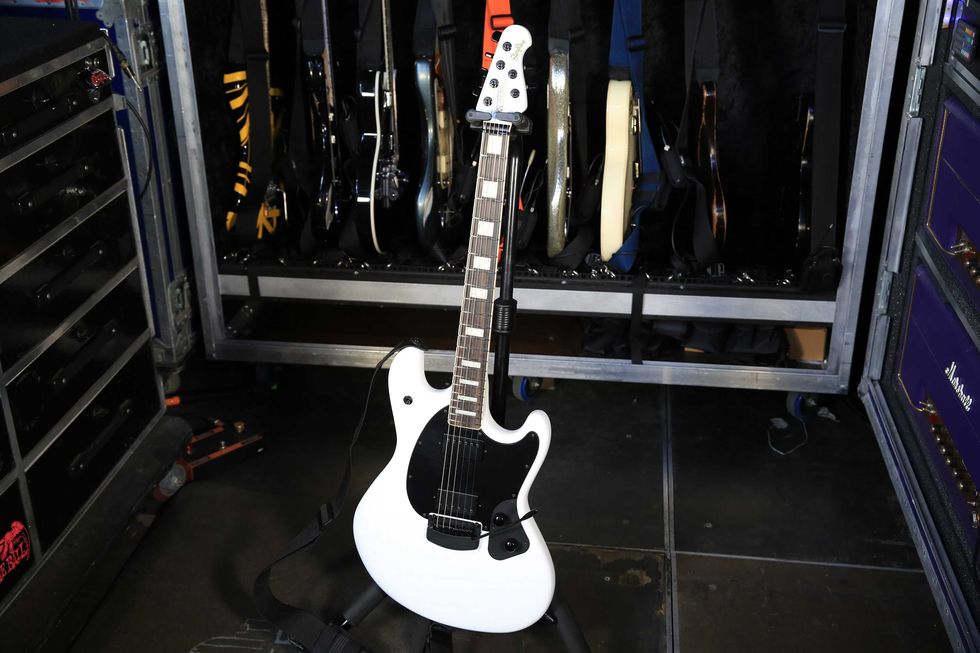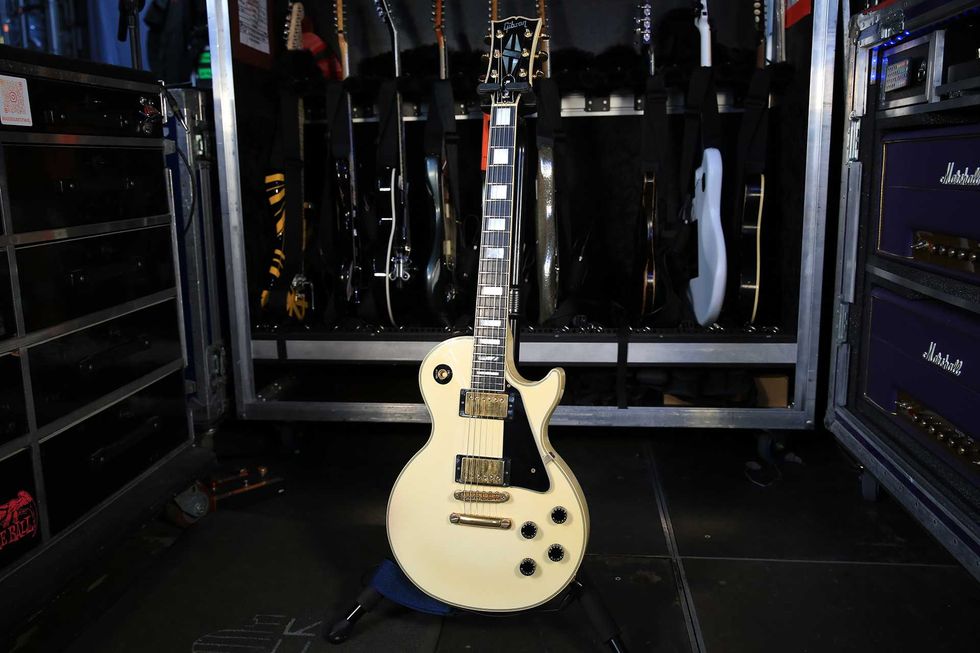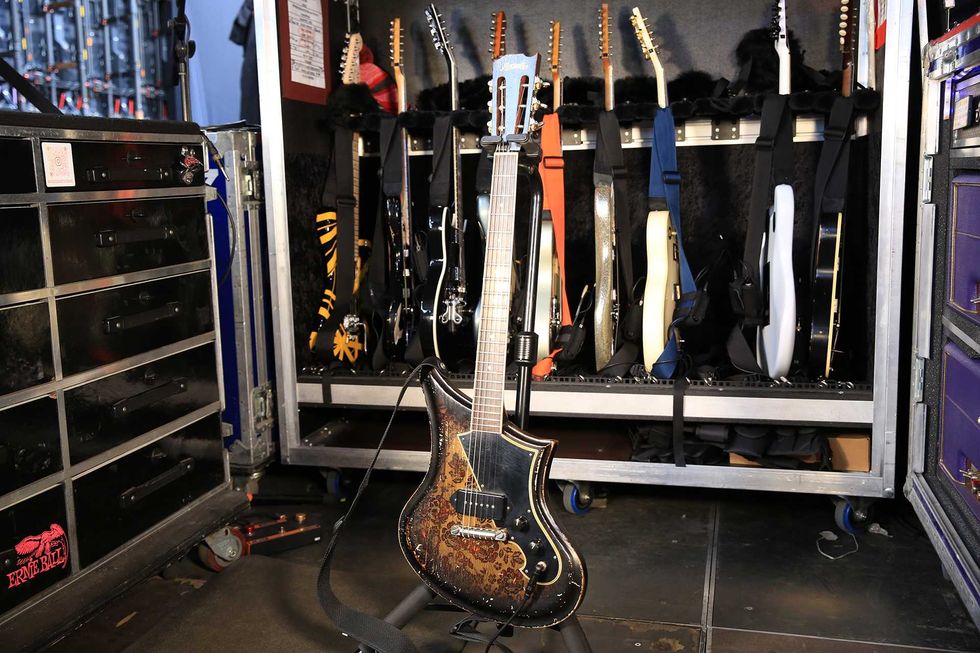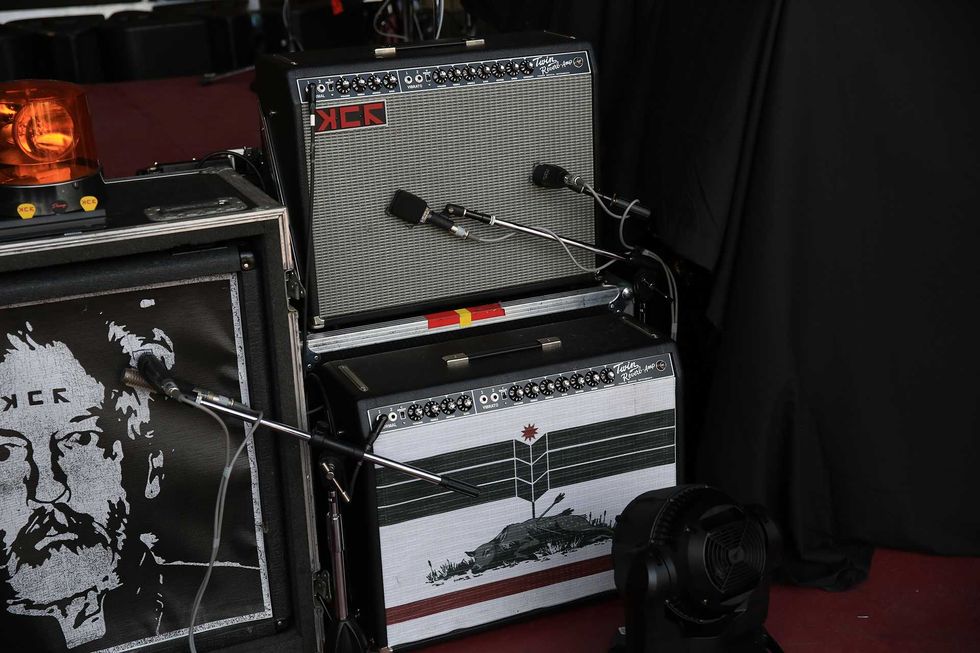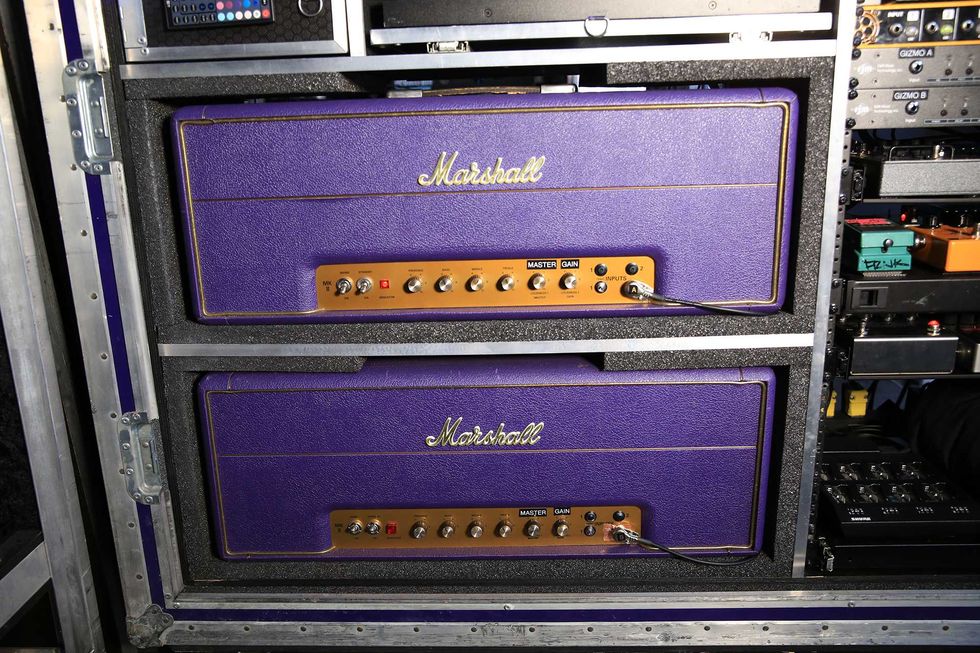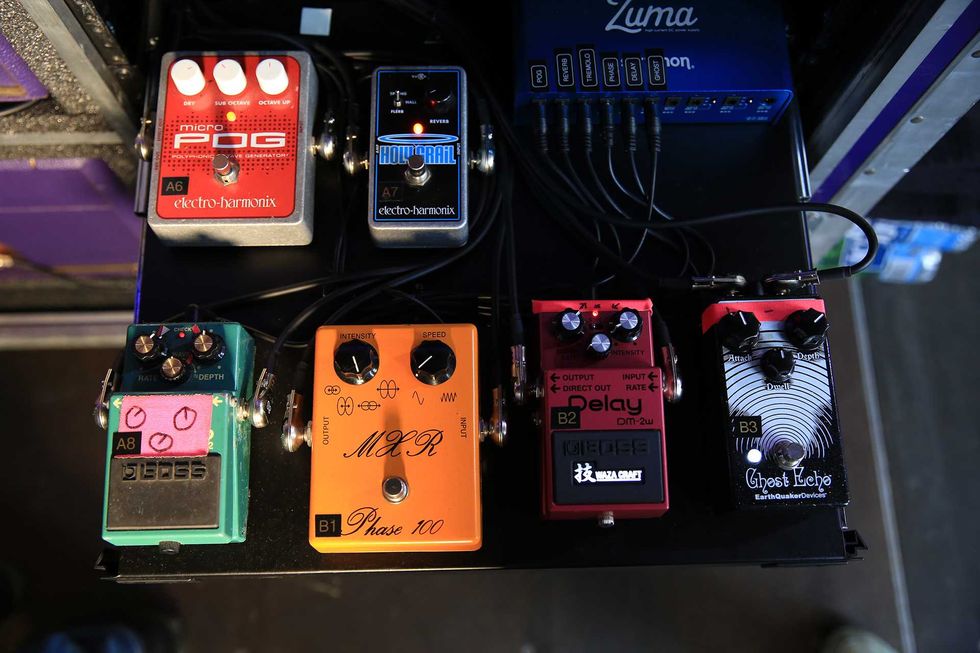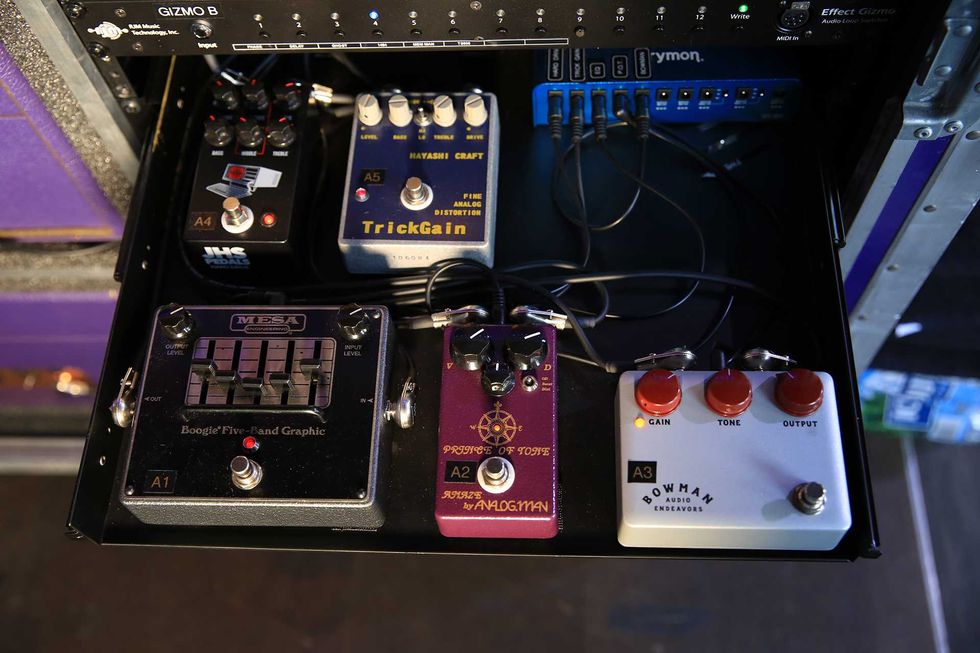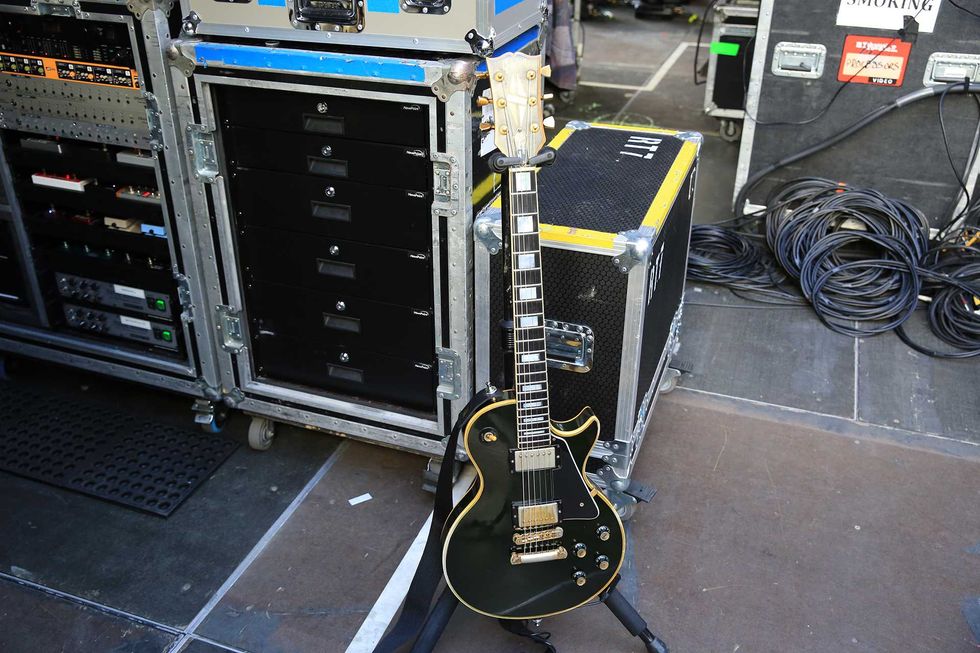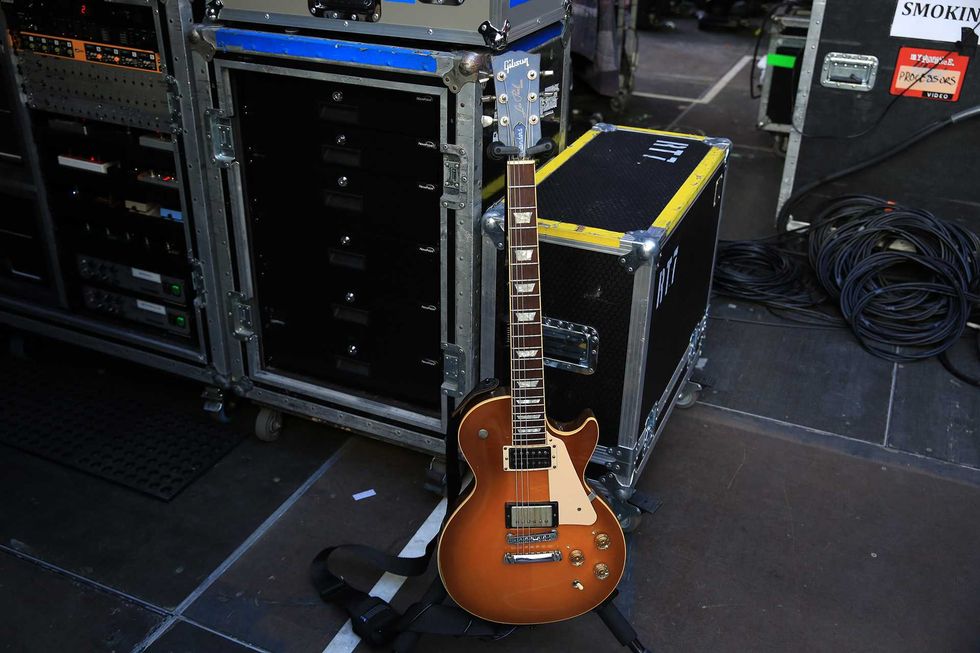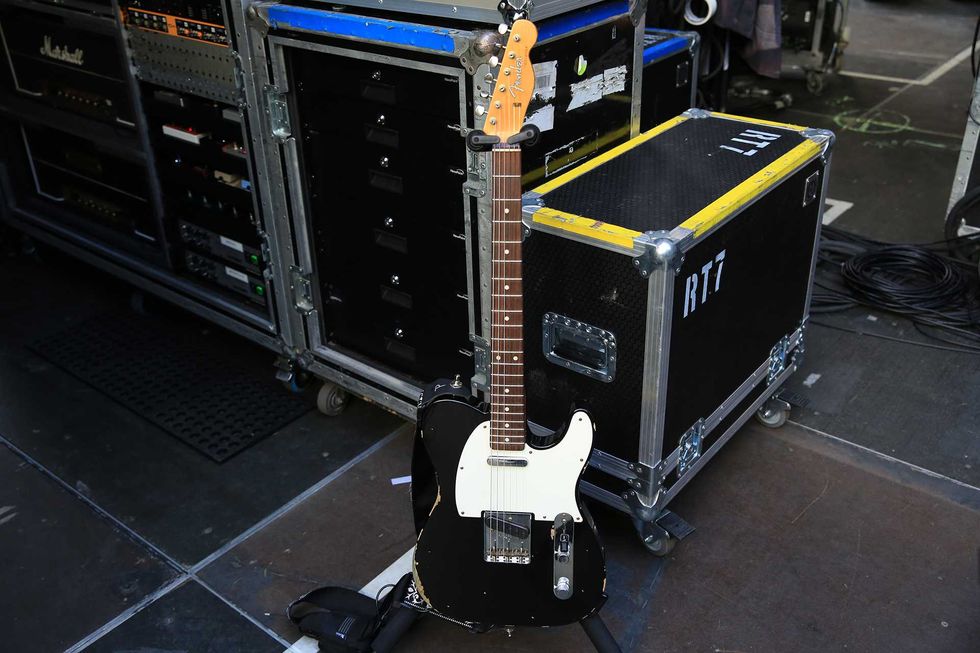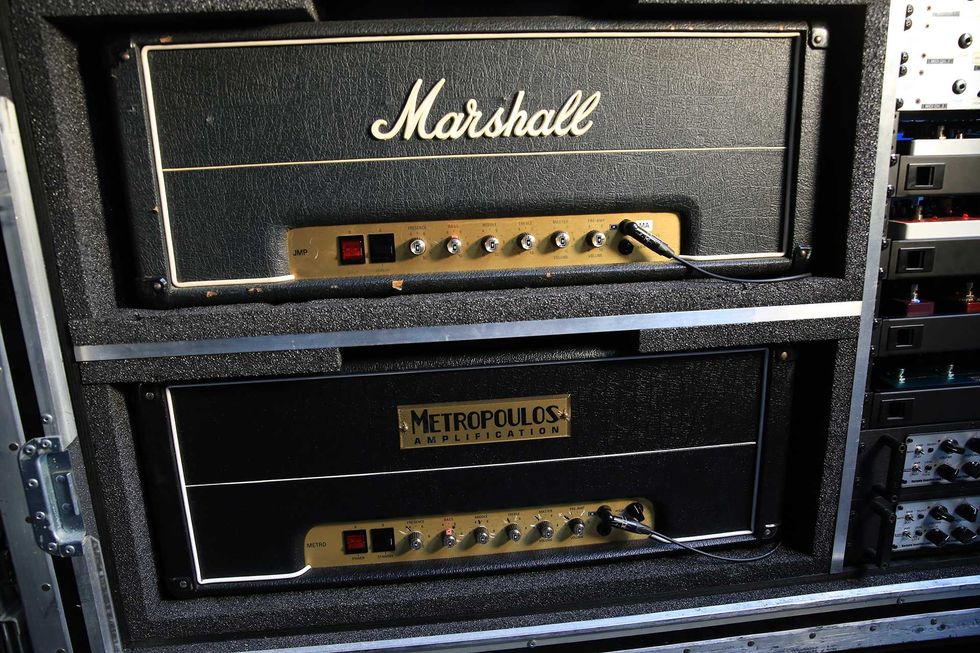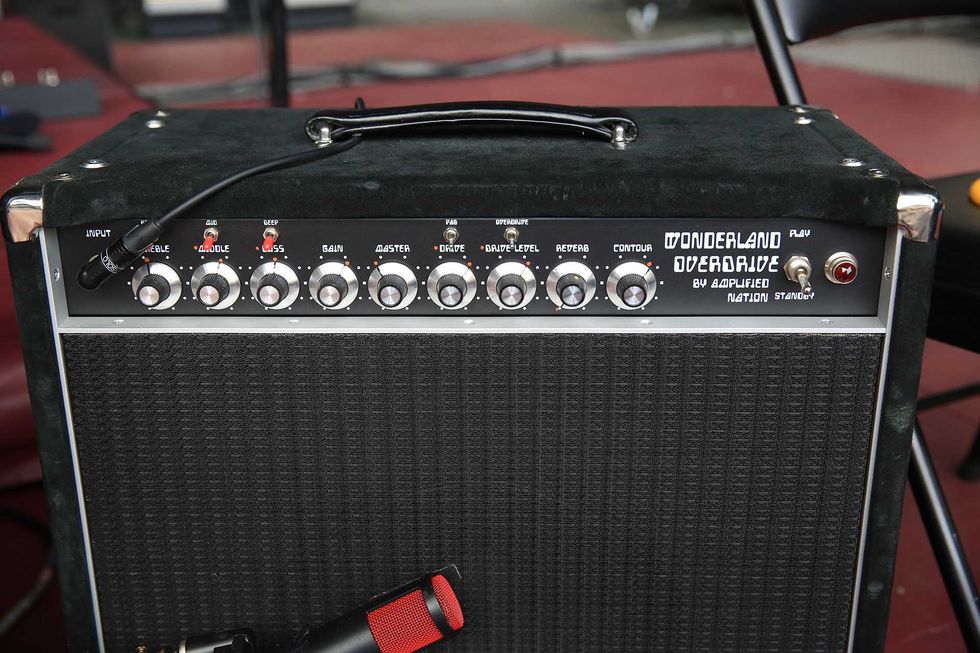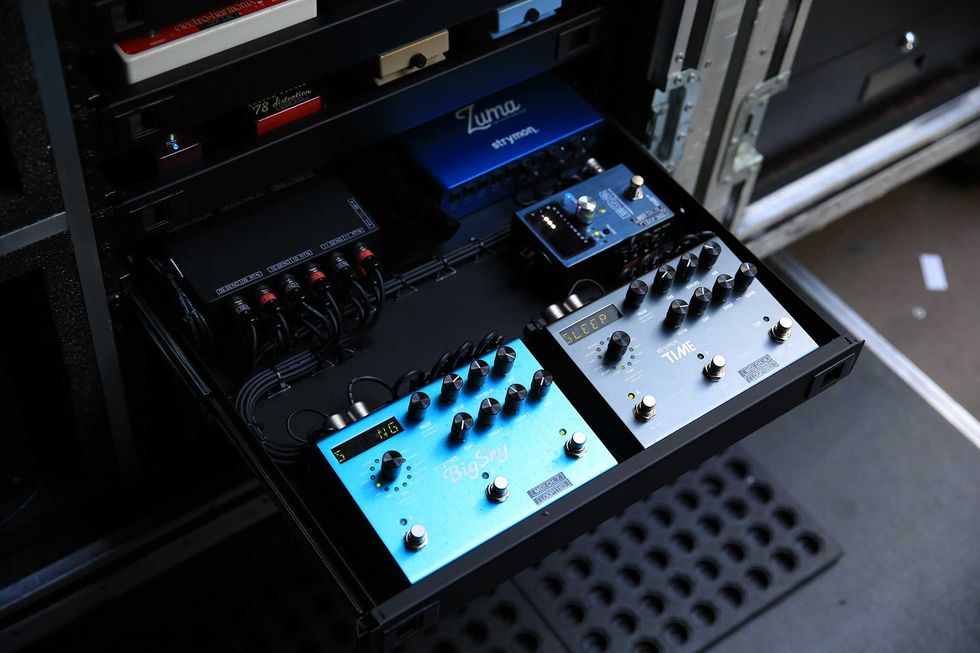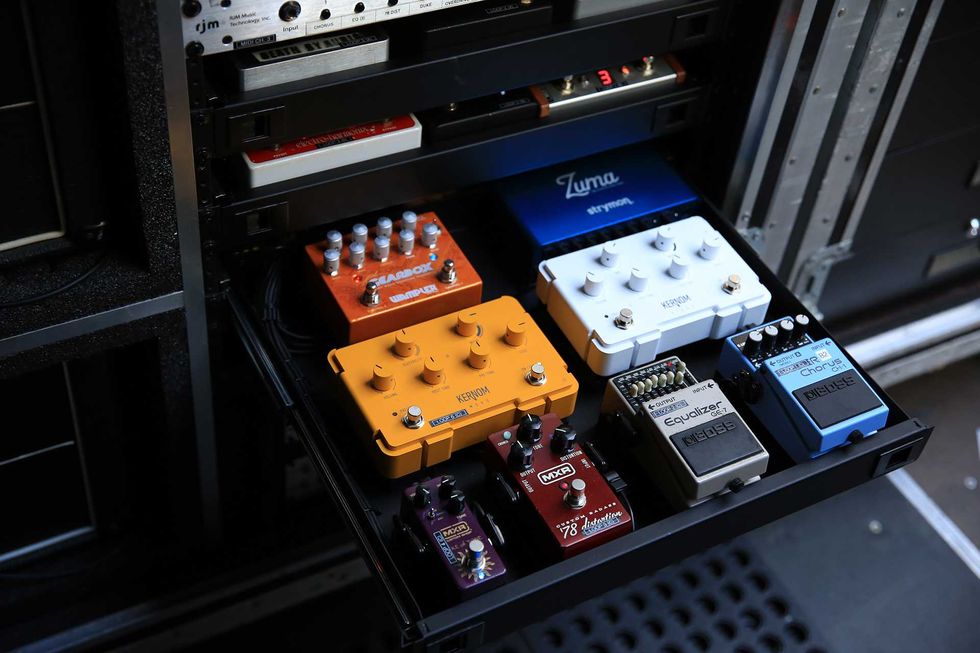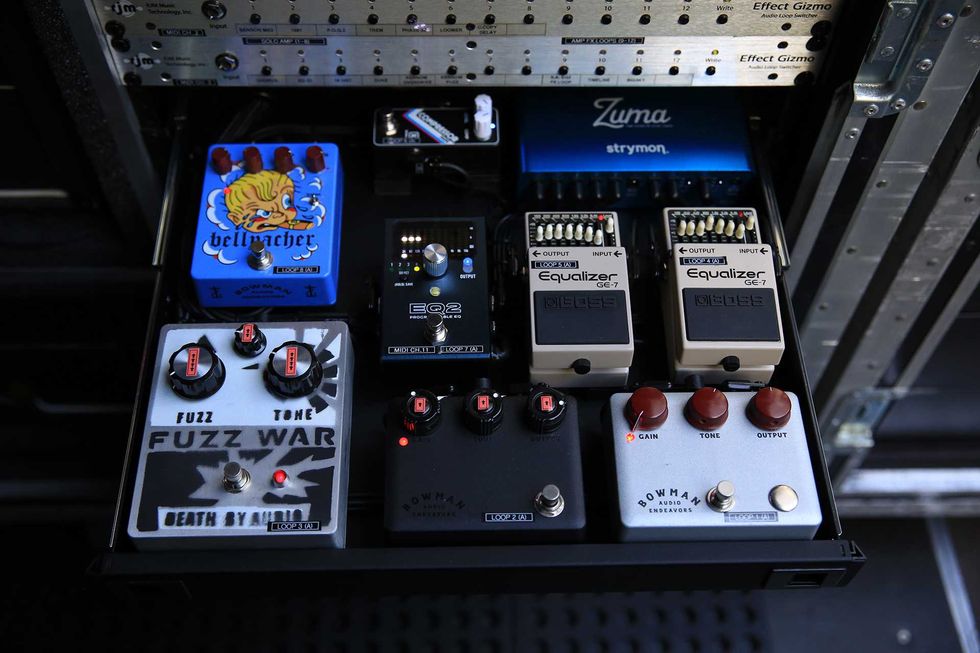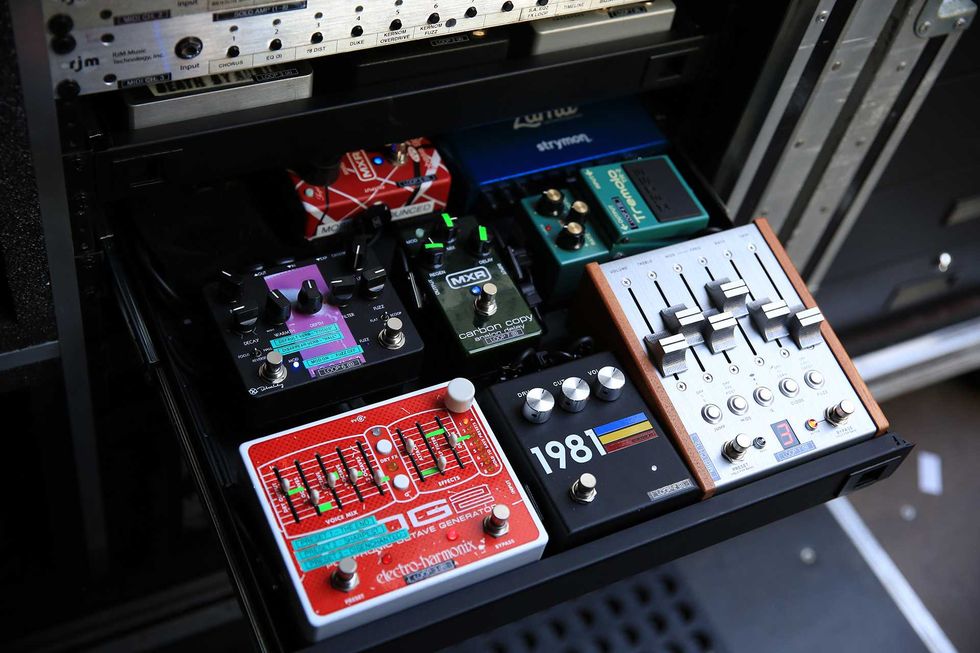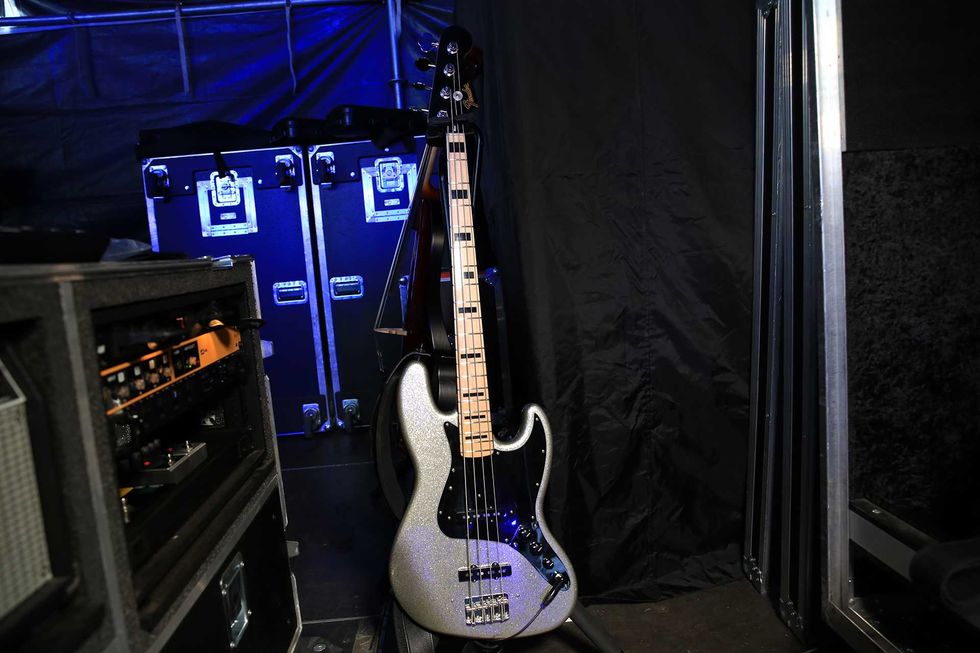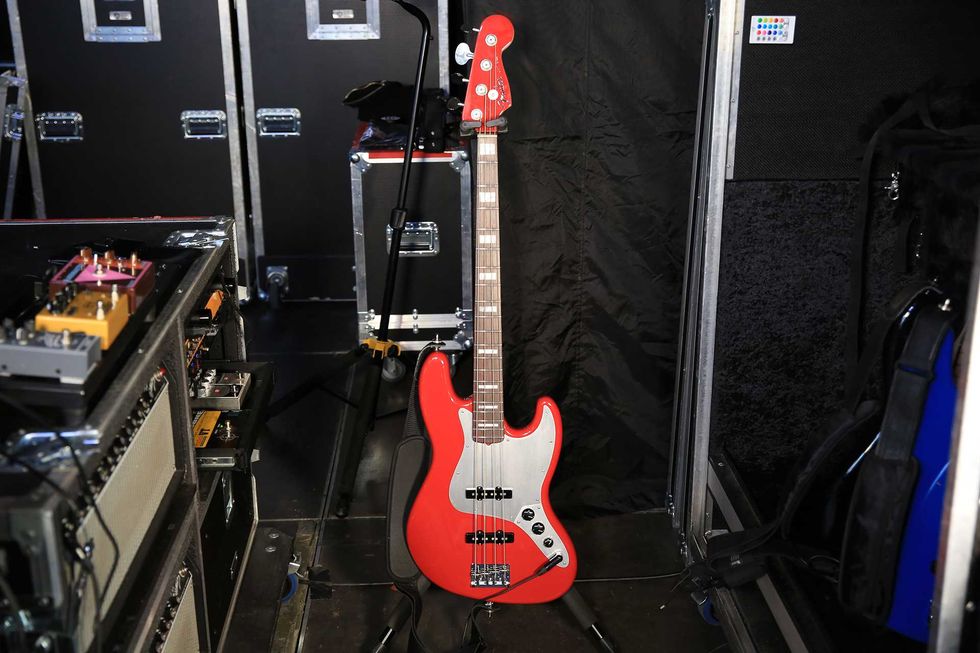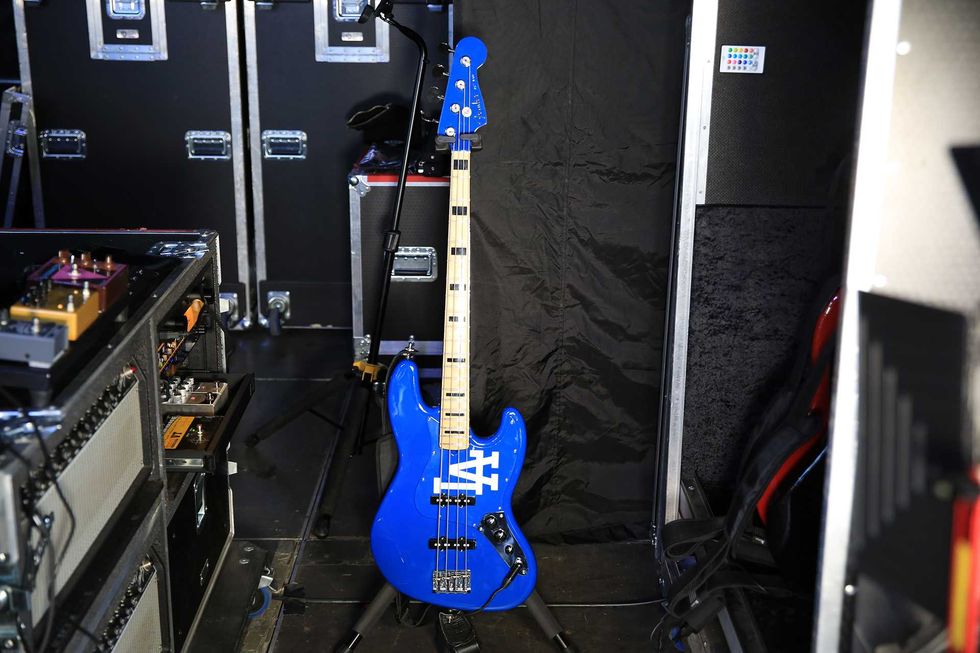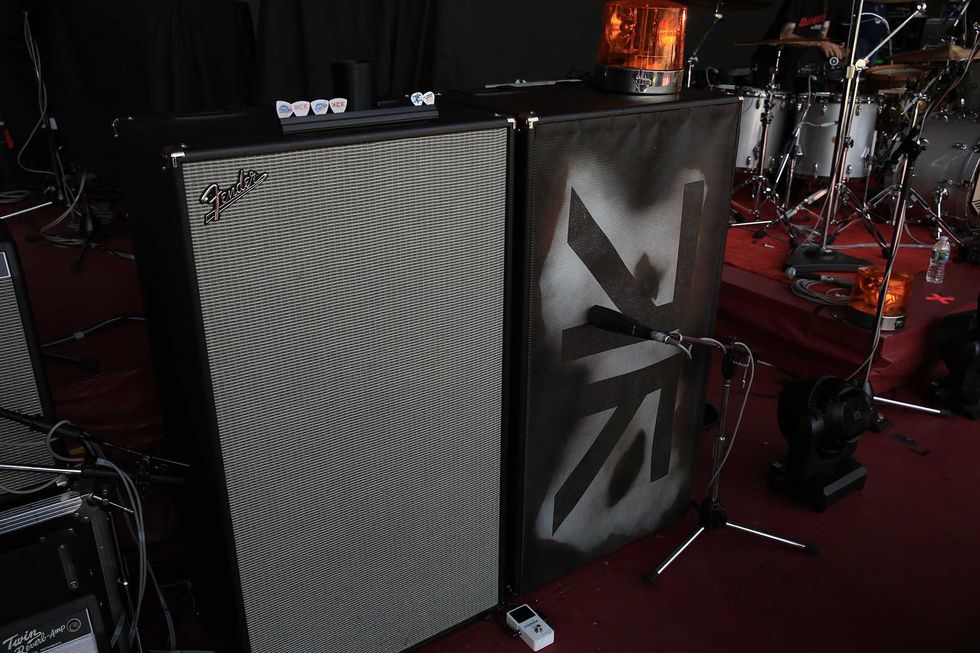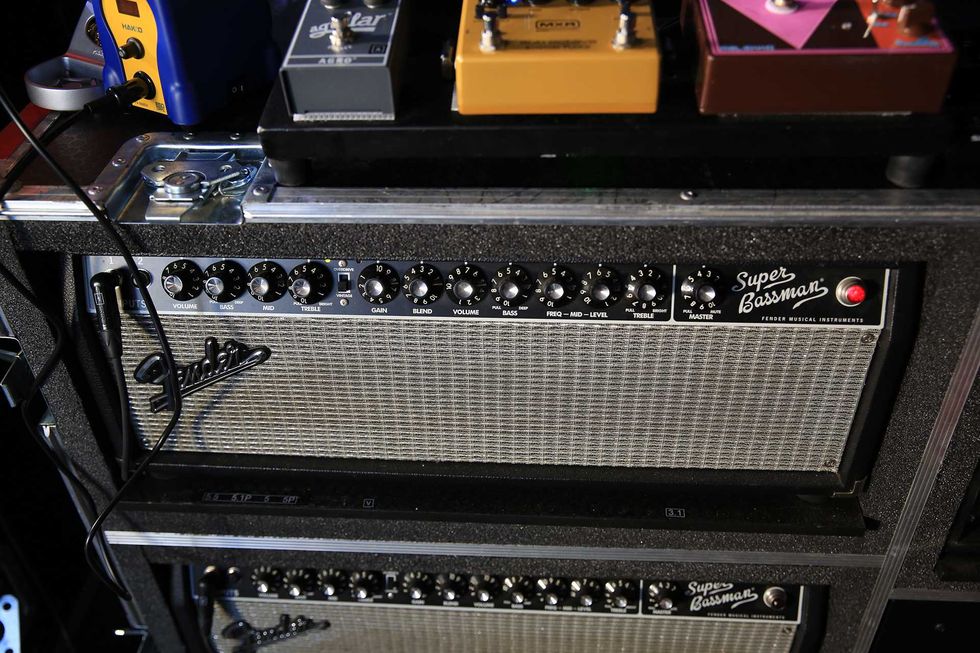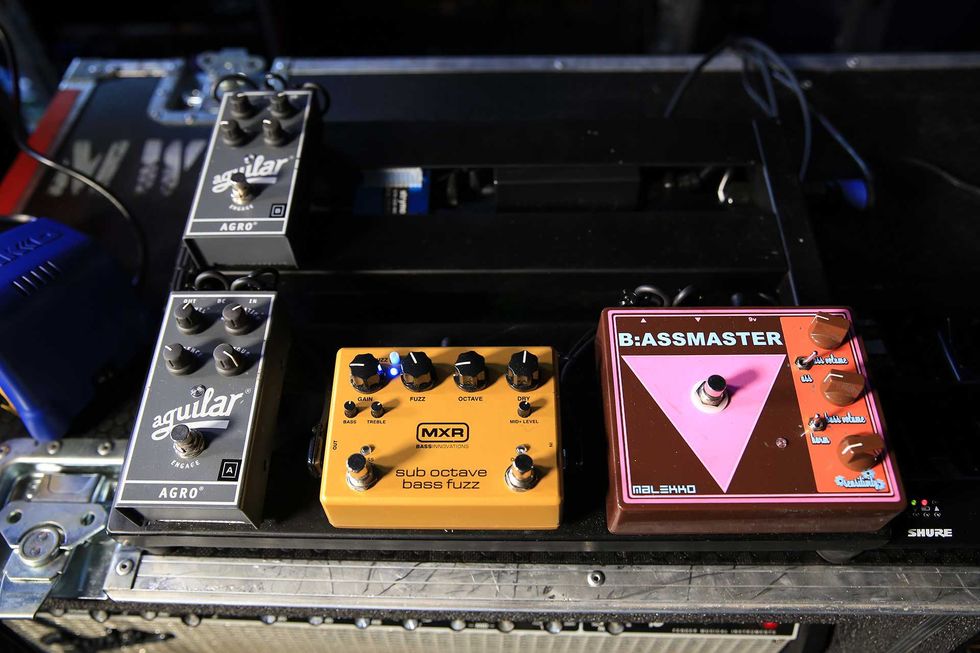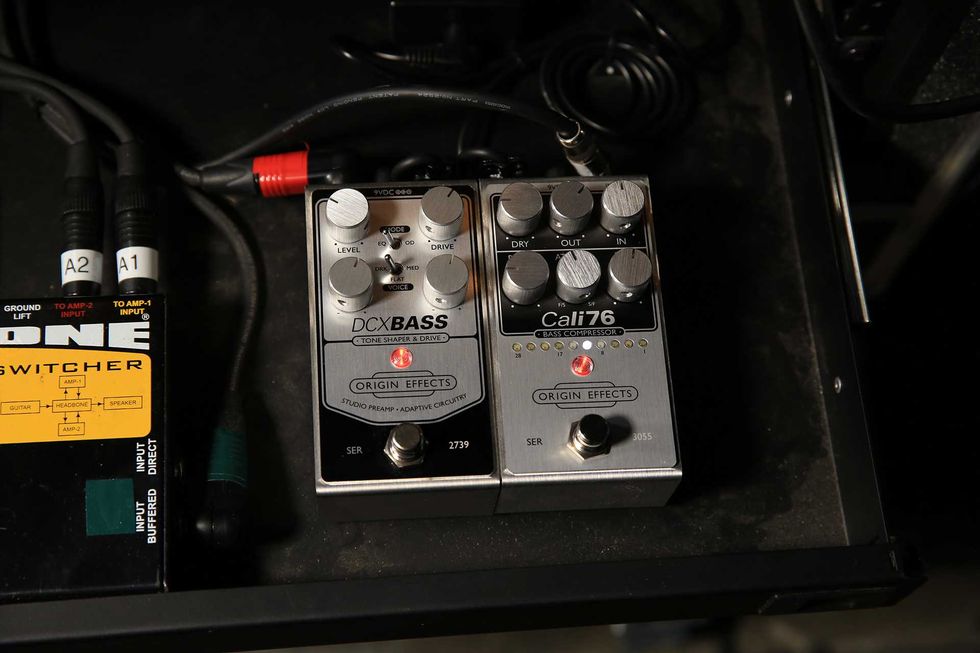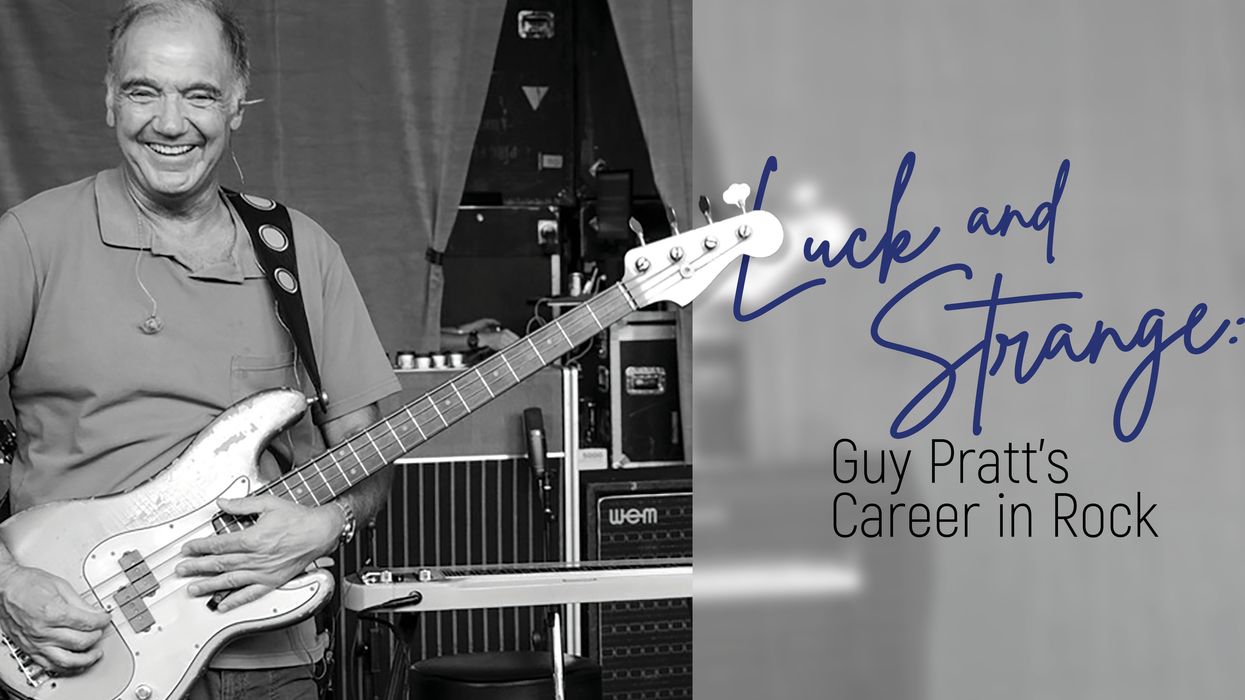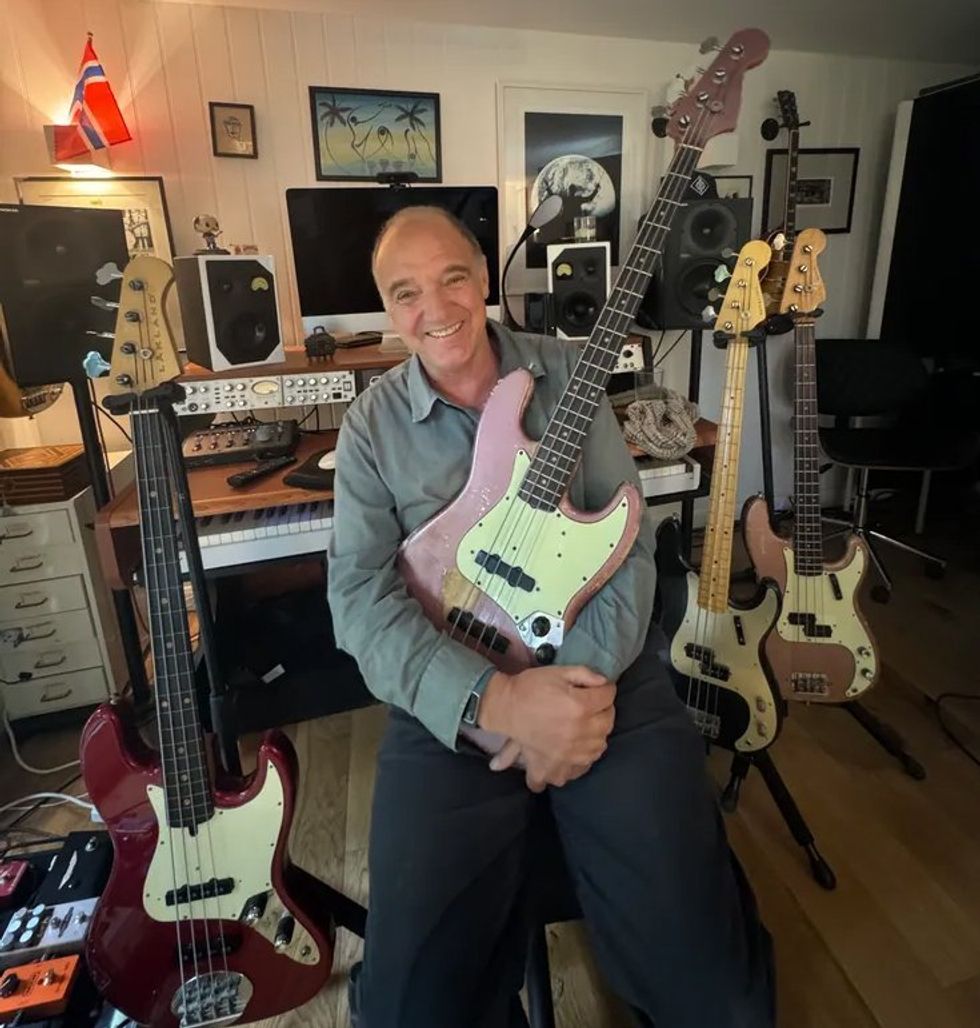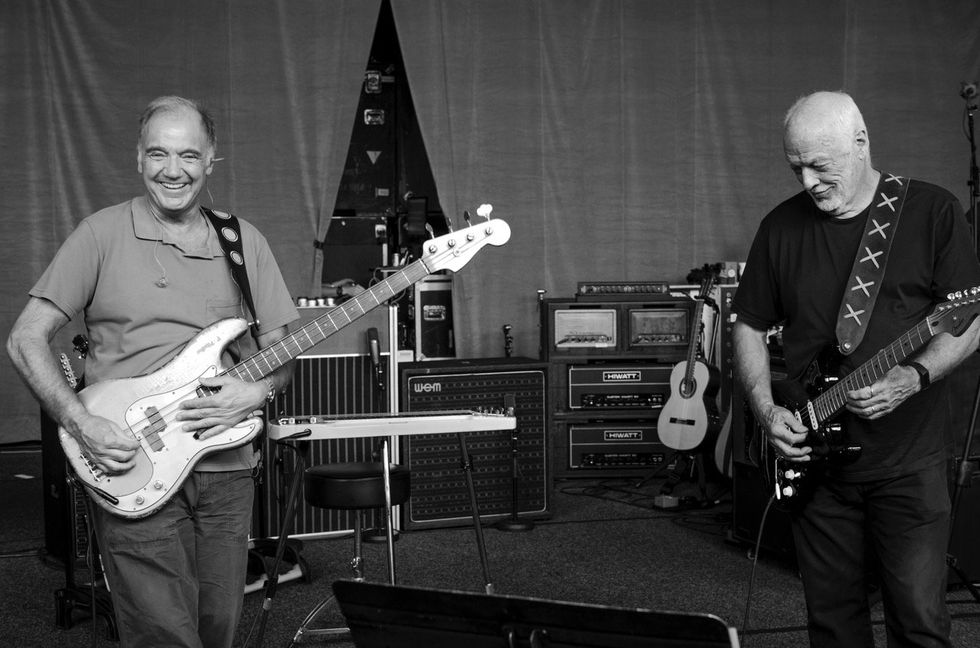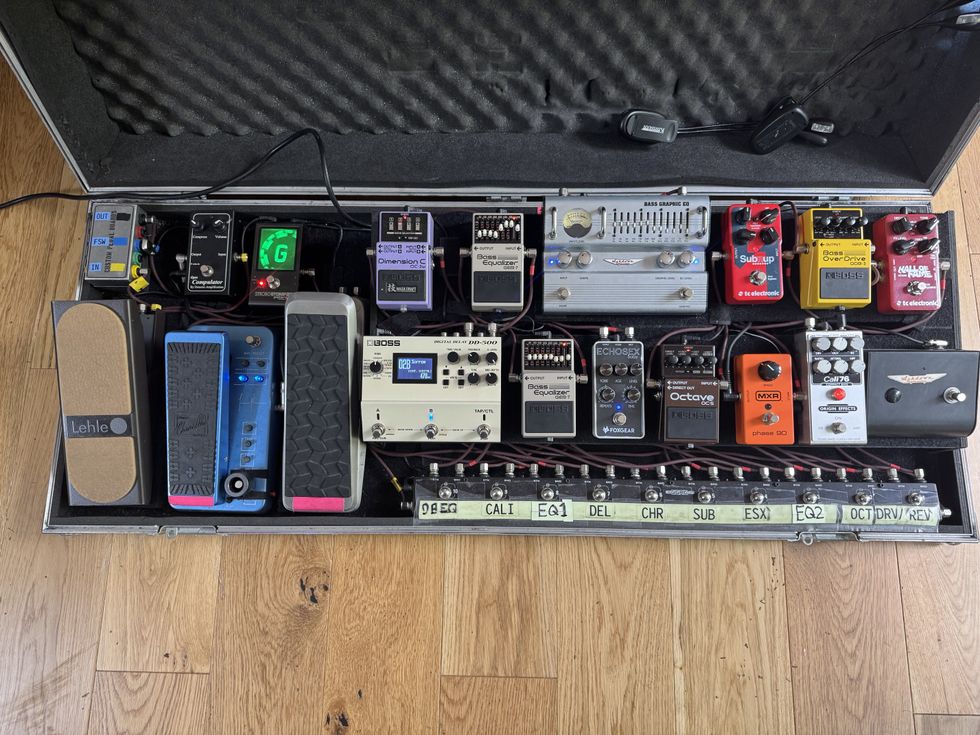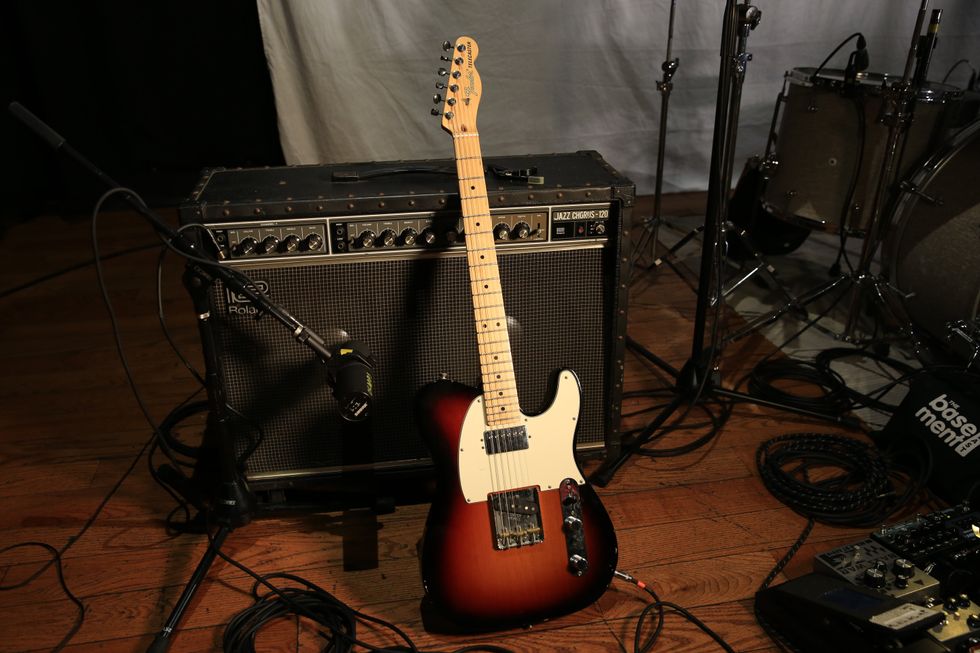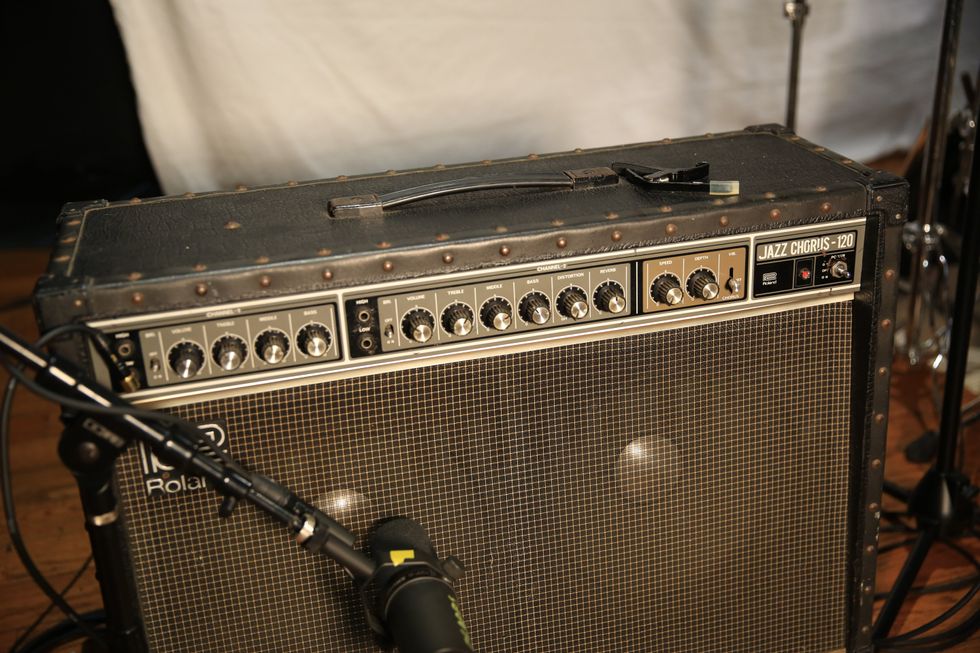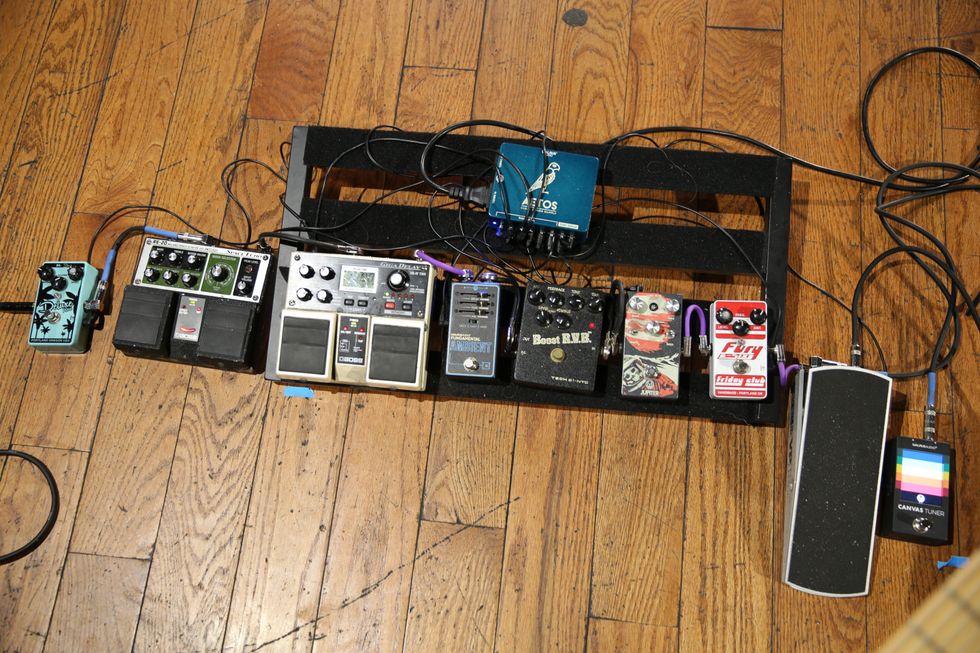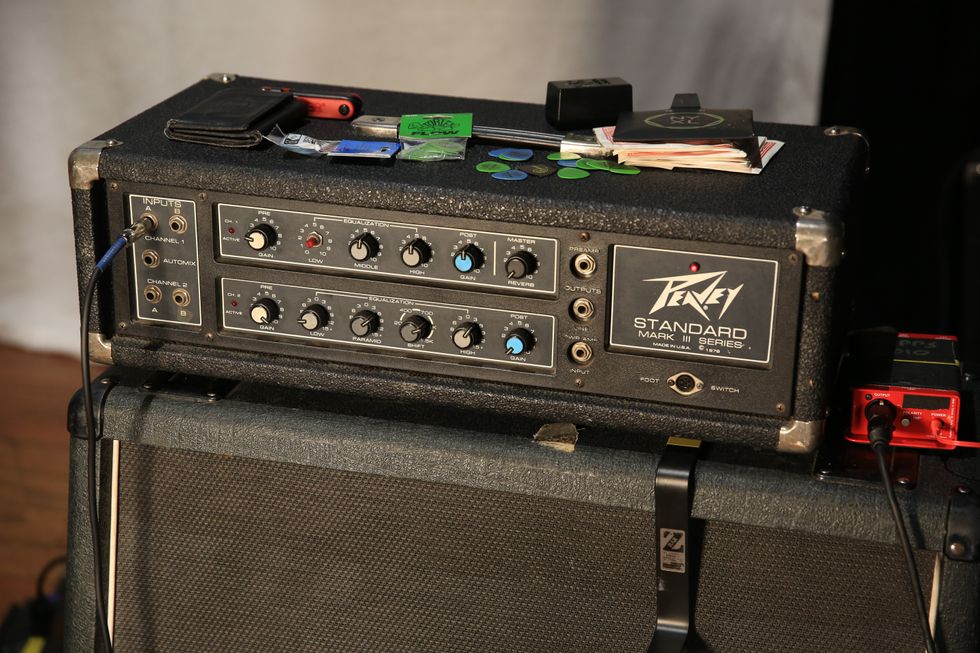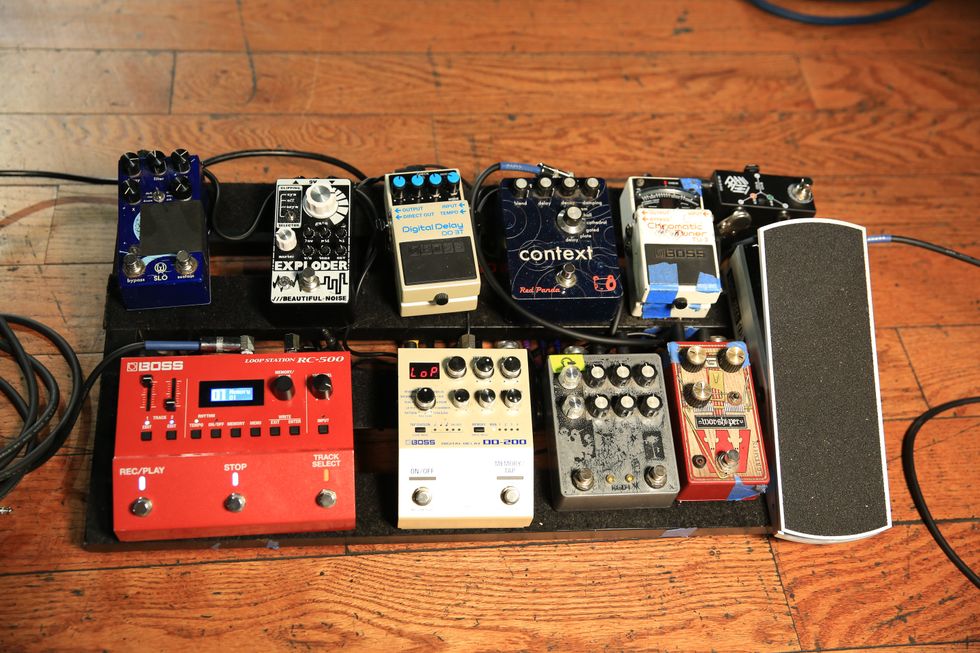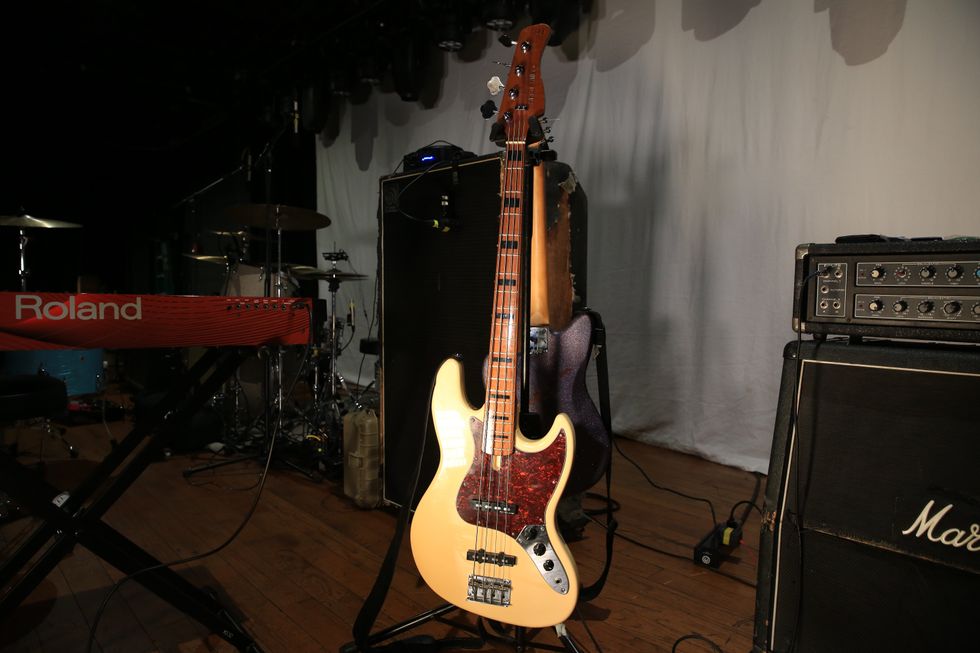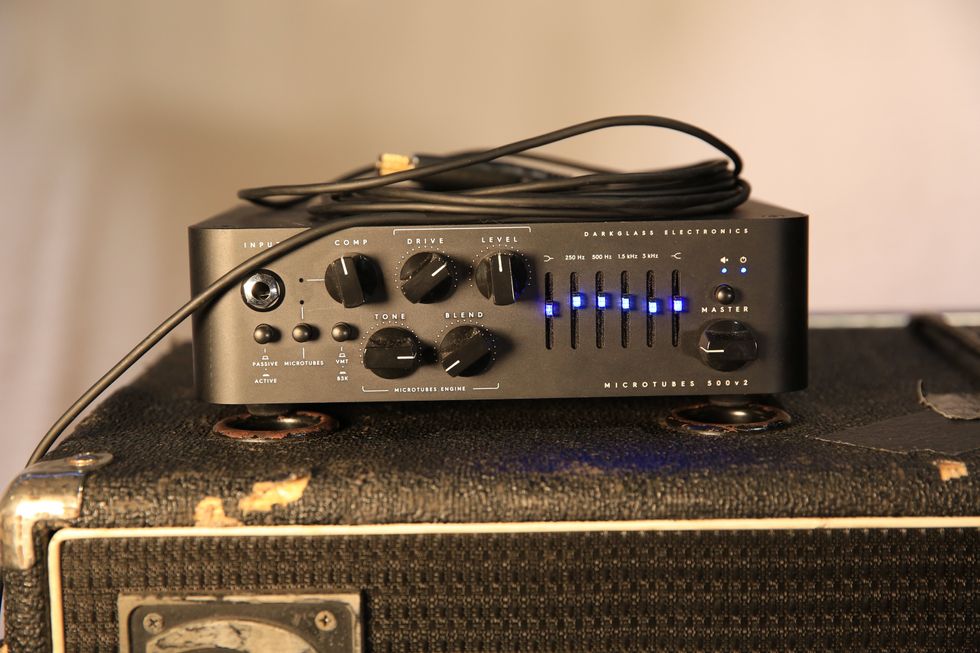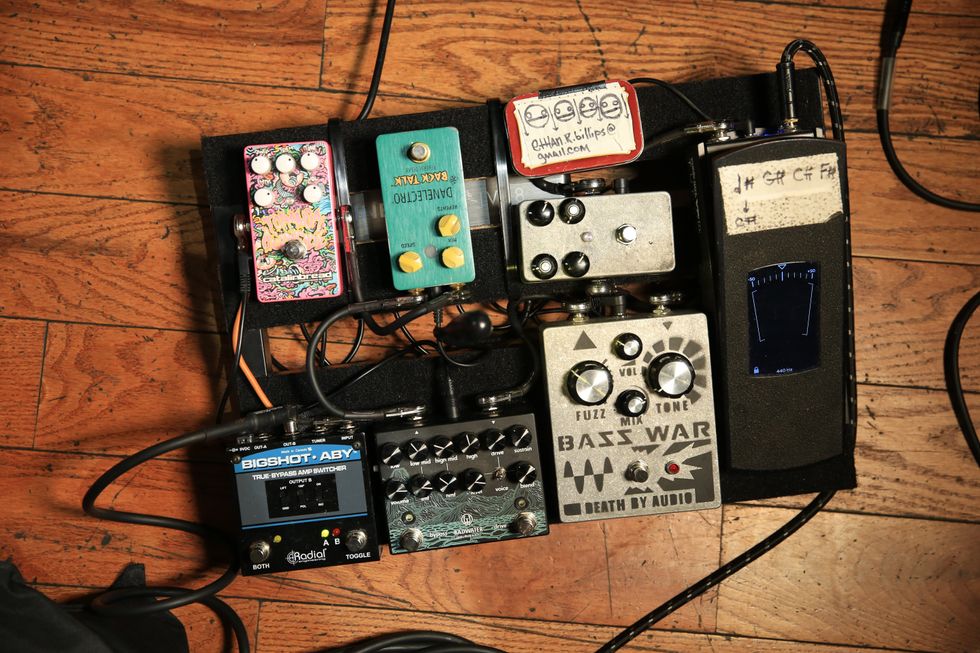
Since Grover Jackson first collaborated with Randy Rhoads to build the infamous Concorde guitar that Rhoads wielded on Ozzy Osbourne’s first two solo records, Jackson Guitars has been supplying an arsenal of blistering rock machines to die-hard rock and metal players. Each creation—most notably the Soloist, King V, Dinky, and Kelly—helped pave the way for the extreme-metal revolution during the ’80s, replete with a distinctive flair all their own. Though guitarists are the company’s primary focus, Jackson has not forgotten about bassists. And they have a storied history with some of the world’s most visible rock-bassists to prove it. One of their newest creations—the JS3 Concert—aims for the budget-minded bassist with the heaviest of proclivities.
In Concert
Jackson’s new JS3 Concert Bass doesn’t really take any visual liberties with its time-tested design. It harbors the same look that Jackson fans know and love, right down to the simple Strat-style-body and shark-fin inlays. In fact, the wildest difference is its availability in a transparent black finish, in addition to black or quicksilver. There’s also an option for 5-string players (dubbed the JS3V), which is available with a striking silverburst finish in addition to black and quicksilver options.
The JS3’s body is constructed with basswood, and bolted to the body is a 24-fret oiled maple neck with a rosewood fretboard that’s ivory-bound and adorned with Jackson’s MOTO shark-fin inlays.
The pair of Jackson-designed active humbuckers is housed in the gloss-black body, and is controlled by a large array of knobs. Jackson’s refusal to keep with single volume and tone controls should be commended—the JS3’s control setup gives the player an awful lot to work with without having to reach over and touch their amp. Each pickup has its own Volume knob, in addition to a shared 3-band EQ for Bass, Midrange, and Treble controls. Keeping the strings taut over the pickups is a Jackson high-mass bridge, which is strung through the metal plate on the back of the bass.
The Curtain Rises
Like their guitars, most Jackson basses are geared towards players on the heavier end of the spectrum—think Dave Ellefson of Megadeth and John Campbell of Lamb of God. The JS3 Concert continues that tradition with a very aggressive palette of tones, along with the ability to rein in the tone to sit in the mix with more subtlety.
As I ran through the bass intro of Megadeth’s “Peace Sells” into a Traynor YBA300 head and matching 8x10 cabinet, the JS3’s inherent, grinding tone shone brightly with extremely thick midrange and top-end pop. It was really surprising to hear just how much presence the mids had in the mix, especially considering that all the EQ controls were set completely flat. They had a considerable amount of body and detail, but I had to drop the Mid knob on the bass slightly to keep that frequency range from overpowering everything else. Interestingly, the lows had very similar tonal tendencies, with more of a firm and boomy nature rather than wide and significantly deep. For the thrashy, metal riffage I was employing on the strings, these traits were perfect for keeping the lower body of the tone focused and punchy, essential for keeping the tight and rhythmic nature of that brand of rock together.
Despite the extended amount of midrange punch, the Jackson’s pickups retained a clean and defined tone through the Traynor rig. And thanks to the neck’s excellent fretwork and binding job, my hands had no comfort issues when moving up and down the fretboard with quick runs and fast riffing. For such an inexpensive bass, the feel was exemplary. There are a lot of rock- and metal-oriented basses in the market for the price-conscious bassist, but I’ve encountered few with the JS3’s level of comfort and playability.
The JS3 is quite capable of covering other musical genres as well. When I dropped the Treble and Mid knobs and slightly boosted the Bass, I was treated to some nice and bumpy, ’70s classic-rock tones, albeit with a slightly brittle high-end. Since the JS3 is such an aggressive-sounding instrument, pulling back certain frequencies cast a light on some of its tonal flaws—such as highs that lacked a distinctively smooth top-end when lowering the mids and bass. Nevertheless, the bass was able to get the job done when I laid down some R & B, country, and blues-driven grooves—just not with quite the same amount of believability as the tone it had with heavier styles.
The Verdict
If you’re a rock bassist on a budget, but still want bass tones that are tight, the JS3 is a great option. It handles thrash and hard rock exceptionally well for an instrument in this price range, but falls just a little short in the realm of smooth and even tones that styles like R&B demand. Regardless, the JS3 is a solid bass that will get the job done, and is definitely worth consideration if the depth of your wallet is on the shallow end.
Buy if...
you’re after solid, punchy bass tones for fast, loud rock.
Skip if...
you need more expressive, balanced tones with a wide, low end.
Rating...
Street $379.99 - Jackson Guitars - jacksonguitars.com |



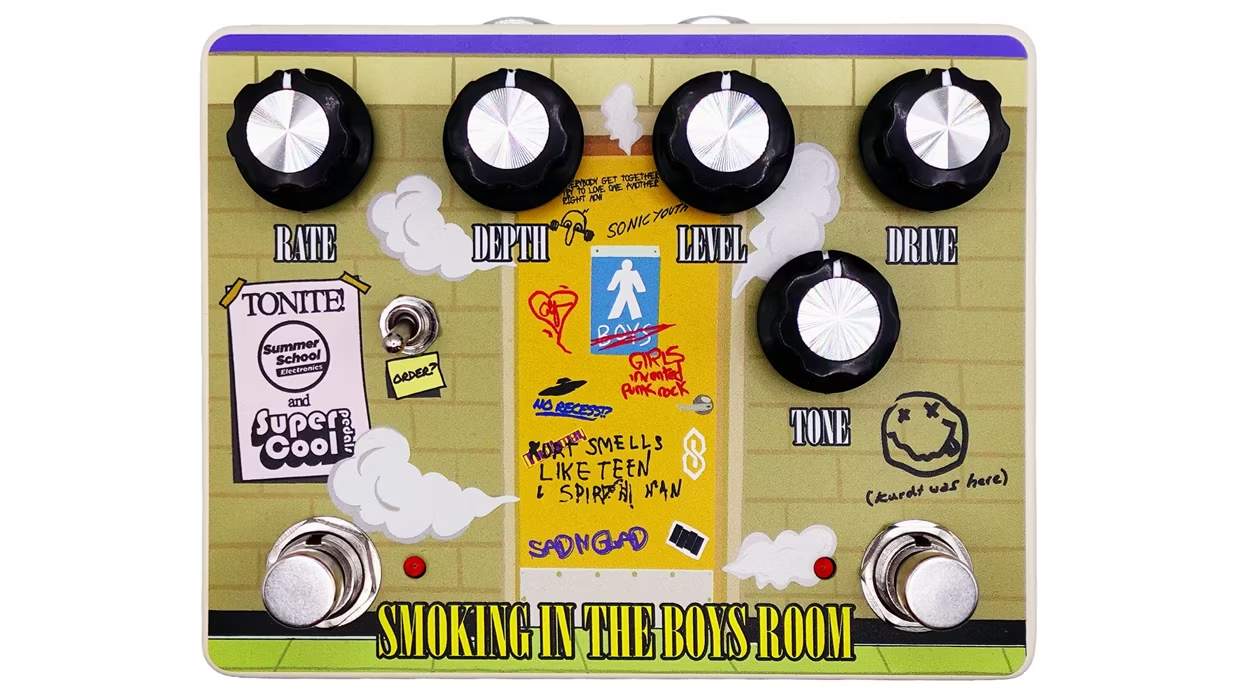

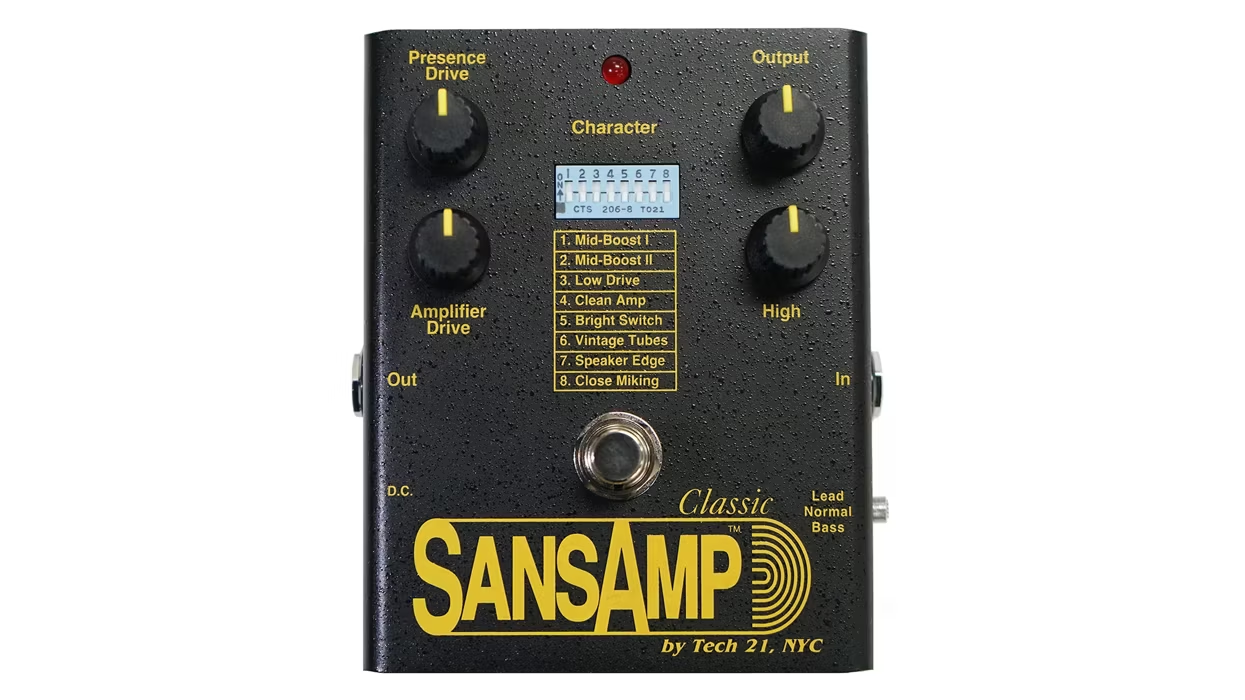

![Rig Rundown: AFI [2025]](https://www.premierguitar.com/media-library/youtube.jpg?id=62064741&width=1245&height=700&quality=70&coordinates=0%2C0%2C0%2C0)












 Shop Scott's Rig
Shop Scott's Rig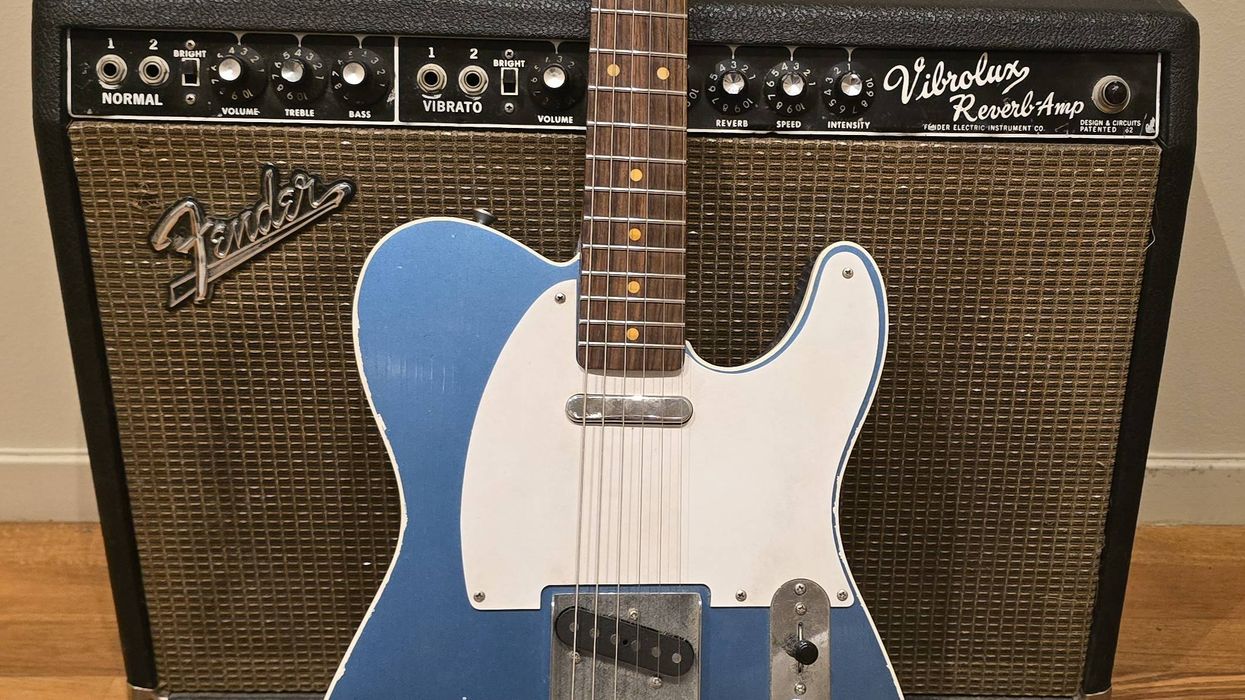
![Rig Rundown: Russian Circles’ Mike Sullivan [2025]](https://www.premierguitar.com/media-library/youtube.jpg?id=62303631&width=1245&height=700&quality=70&coordinates=0%2C0%2C0%2C0)


